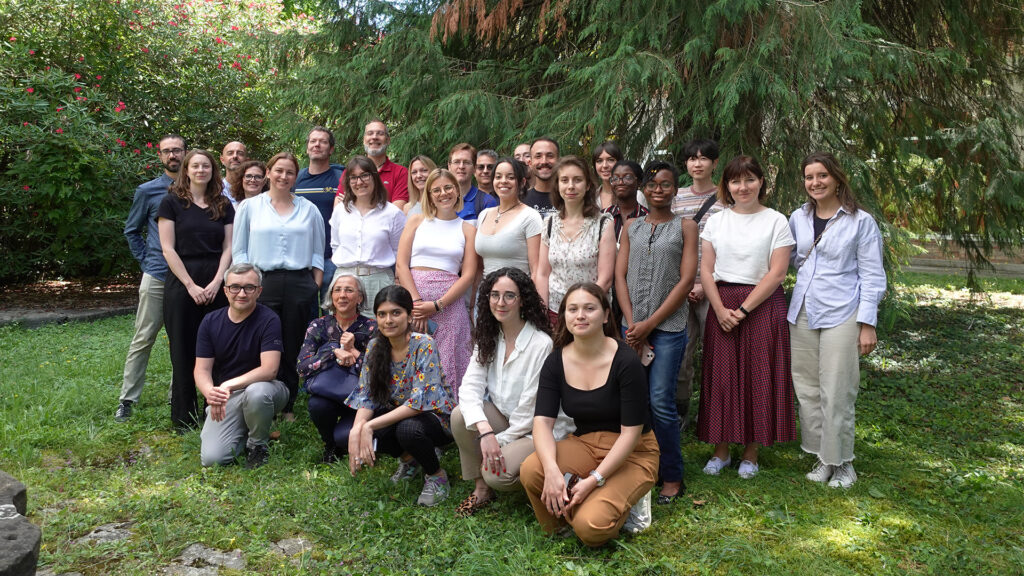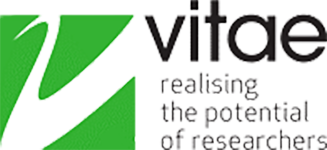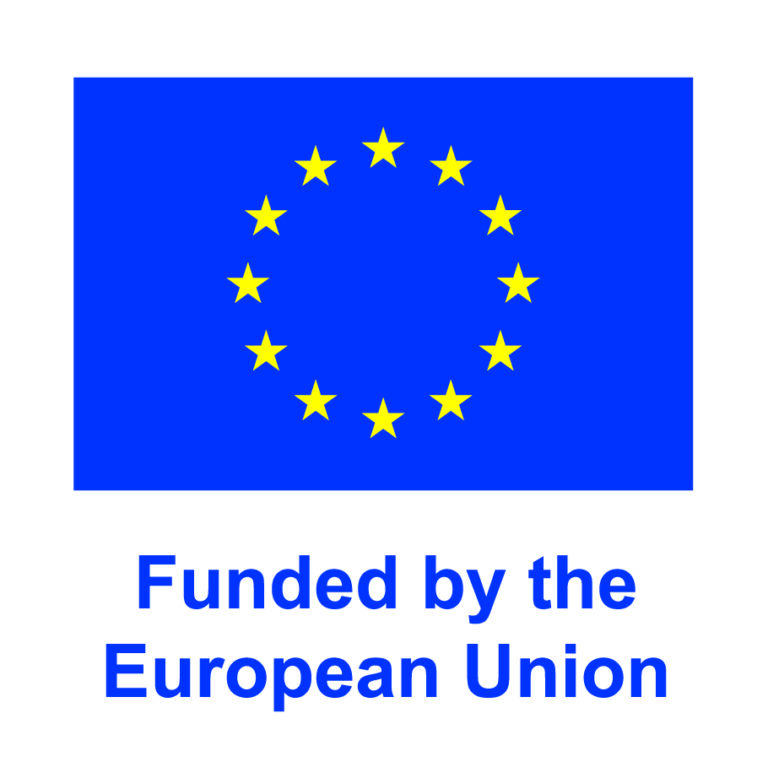
1st MITGEST training week (Italy)
From the 25th to 29th July, the first training week of MITGEST took place in Udine, which was hosted by Dr. Catlo Vascotto, the project coordinator and the University of Udine. The week was filled with informative lectures, engaging workshops, and many networking opportunities led by beneficiaries and associated partners.
The MITGEST training week lasted five days and brought together 31 participants in person, experts in mitochondrial research and motivated doctoral candidates. The event kicked off with a warm welcome from Dr. Vascotto extended to all participants and especially to MITGEST DCs, who met for the very first time.
Programme
09:00-11.00 Welcome & Introduction
11:00-11.30 Coffee break
11.30-12:00 “Introductory lecture on the mitochondrial system”
Dr. Ian Holt, Biodonostia Research Institute (Spain), Department of Neuroscience, Mitochondria, Health & Longevity group
12:00-12:45 “Mitochondrial DNA damage and repair mechanisms”
Dr. Carlo Vascotto, University of Udine (Italy), Department of Medicine
12:45-13:30 “RNA decay in mitochondria”
Dr. Roman Szczesny, Institute of Biochemistry and Biophysics, Polish Academy of Sciences (Poland), Laboratory of Biology
13:30-14:30 Lunch
14:30-15:30 “Probing mitochondrial nucleic acid-protein interaction”
Dr. Hans Spelbrink, Radboud Center for Mitochondrial Medicine (The Netherlands), Radboudumc, Department of Paediatrics
15:30-16:30 “Protein synthesis in mitochondria”
Dr. Joanna Rorbach, Karolinska Institutet (Sweden), Department of Medical Biochemistry and Biophysics
9:00-10:00 “Mitochondria quality control, positioning and transport”
Dr. Arnon Henn, Faculty of Biology, Israel Institute of Technology (Israel), Cellular Biology & Biophysics of Molecular Motors research group
10:00-11:00 “Mitochondrial genomic stability in health and disease”
Dr. Antonella Spinazzola, UCL Queen Square Institute of Neurology, University College London (UK)
11:00-11:30 Coffee break
11:30-12:30 “The integrated nucleoid”
Dr. Ian Holt, Biodonostia Research Institute (Spain), Department of Neuroscience, Mitochondria, Health & Longevity group
12:30-13:30 “Mitochondrial transfer: past and future perspective”
Dr. Tina Napso, Minovia Therapeutics LTD (Israel)
13:30-14:30 Lunch
14:30-16:30 “Introduction to science communication: outreach plan”
Ms. Joanna Plesniak, Accelopment (Switzerland)
16:30 Social event: guided tour of Udine followed by a dinner.
9:00-10:00 Introduction to LUMICKS, next-generation life science tools company
10:00-11:00 Remote demo, to see how the technique works in practice
11:00-12:00 Examples of the technology applications and discussion
12:30-14:00 Lunch
14:00-14:30 Basic Seahorse introduction
14:30-17:00 Seahorse Wet-Lab
Workshop on Seahorse analysis – Part 1 (Dr. Alfredo Caro Maldonado & Dr. Daniel Gebhard, Agilent Technologies)
9:00-11:30 Seminar: Seahorse Assays & Data Analysis
Workshop on Seahorse analysis – Part 2 (Dr. Alfredo Caro Maldonado & Dr. Daniel Gebhard, Agilent Technologies)
Afternoon: Free time
Workshop on “Engaging in professional development” (Dr. Helen Hampson, CRAC/Vitae)
A glimpse into the training week
Science communication
DCs also had the chance to learn more about science communication and co-create the MITGEST Outreach Plan. within an interactive workshop delivered by Joanna Plesniak from accelopment. The session included hands-on exercises on the identification of the key target groups and mapping stakeholders on the interest/influence grid. Vivid discussions and DCs engagement allowed researchers to better prioritise communication and dissemination activities they will implement throughout the project. DCs were provided with best practices on how to communicate science, tools and best channels. They also learned how to write the news items and articles to later be tasked with writing one about the MITGEST week.
Insightful talk
Of particular interest was the insightful talk on the first day by MITOCON , a representative of a patient-focused organisation, on mitochondrial diseases and the need for novel treatments. DCs had the chance to interact with Mrs. Paula Morandi, an affected patient, and to ask her questions during the coffee breaks. This interactive training week enabled the DCs not only to expand their scientific knowledge but also to develop a deeper understanding of the impact that mitochondrial diseases have on the lives of patients and the importance of their research.
Seahorse analysis
About LUMICKS:
LUMICKS is a company that develops advanced tools for life science research, drug development, bioprocessing, quality control, and patient treatment. At the workshop, attendees learned about the technology behind LUMICKS and its significance for biologists. The technology combines high-resolution optical tweezers, fluorescence, and label-free microscopy with an advanced microfluidics system, allowing for real-time manipulation and visualization of single-molecule interactions.
Workshop on Seahorse analysis
Engaged within the realm of mitochondrial research, the seahorse emerges as an innovative technology, guiding the development of assays for quantifying the dynamic fluctuations within the two pivotal pathways of energy metabolism: glycolysis and aerobic respiration. The Seahorse Seminar, convened as part of the MITGEST week in Udine, extended its discourse across two distinct days, covering both theoretical and practical aspects. The seminar was led by Dr. Alfredo Caro Maldonado and his colleague Dr. Daniel Gebhard, providing the DCs with a great opportunity to approach for the first time or refine their existing knowledge of this cutting-edge technology.
Engaging in professional development
Vitae is a renowned organization that provides global support for the professional development of researchers and promotes the growth of future professionals who aim to make a difference in their careers.. Dr. Helen Hampson, Vitae’s learning and development lead, conducted an enlightening and interactive workshop on tools that can help our DCs become more effective researchers.
During the workshop, the DCs were introduced to Professional Development Planning (PDP) to successfully outline their career development goals and strategies to achieve them. They also learned to use the Research Development Framework (RDF) Planner, a web-based tool that researchers use to identify strengths, and action plans, review achievements, and create a portfolio of evidence.
The workshop was also interactive and involved several self-assessment activities. In smaller groups, the DCs had the opportunity to discuss and reflect on their strengths, weaknesses, and skills, and plan to achieve their goals more effectively, both individually and as a group. This workshop was an excellent conclusion to a fantastic week full of learning and networking. We are excited to see our DCs apply all the knowledge and tools acquired in their research projects and future endeavors.
Dream BIG
Mitochondrial transfer: past and future perspective – delivered by Dr. Tina Napso
Science Communication workshop
Hands on exercises and co-creation of Outreach plan with Joanna Plesniak
MITGEST supervisors
Networking – Experts in mitochondrial research
MITGEST DCs
Explore and connect – Discovering new places and people
Dinner
Exquisite dining in the historical ambience of Udine Castle
Overall, the first MITGEST network meeting was a success establishing a sound basis for fruitful scientific collaboration. The event concluded with participants vowing to maintain their newfound connections and work together beyond the event to ensure ongoing knowledge sharing and collaboration amongst the members of the network.






